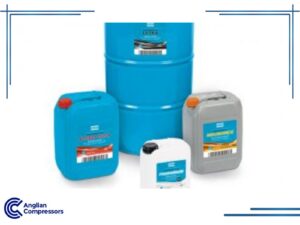How to choose the right oil for your compressor
Oil is essential for various types of engines. An air compressor, along with it’s motor, often needs oil as a lubricant or to prevent the parts from overheating. Not all compressors require oil, but for those that do, choosing the right oil for your compressor is vital.
In this article, we cover the benefits of using a better oil, whether synthetic is preferred over natural, and other factors worthy of consideration.
Table of Contents
How is Air Compressor Oil Different from Other Types?
The oil used as a lubricant is made up of an oil base, plus often a host of other additives, and extras depending on the necessary application.
A compressor and its motor rely heavily upon oil that’s already optimised for the equipment. Simply put, any old oil just won’t do. We outline a few of the benefits of air compressor oil below:
· Increased lifespan – Compressor oil additives ensure lubrication of the parts for longer than normal. This prevents excess parts wear, but additionally, avoids a motor suffering when in standby mode for an excessive period.
· Reduced heat – Oil for air compressors is impressive for it’s heat absorption properties, allowing the machinery to remain cooler than it otherwise would be.
· Resist acid build-up & oxidation – The additives help delay oxidation and acid build-up in machine parts.
· Water separation – The process of removing oil from water begins with the oil additives that assist in this process. Water, as a by-product of the air compression process, must be separated from oil remnants.
· Viscosity at a range of temperatures – Inferior oil products lose viscosity at lower temperatures. Better air compressor oils do not.
Natural vs. Synthetic Oils
In some situations, natural is still preferred over synthetic when an air compressor is not expected to be in continual use. A variable speed motor air compressor fits into this category, whereas a fixed speed compressor likely will not. Natural oil is based on mineral oil and is typically more affordable.
Synthetic oil lacks detergent and contains reduced carbon levels. They also reduce sulphur and other unwanted deposits. Heat management is improved too. Potential flashpoints or auto-ignition points are higher, which, paired with better heat management, can make them safer in use.
The inclusion of specific additives proven advantageous for non-stop air compressor operations can lead to the recommendation of synthetic oil over a natural one in some circumstances.
Furthermore, some air compressor manufacturers may work with oil producers to create a lubricant that offers the necessary properties to support their equipment. Therefore, a compressor manufacturer sometimes recommends certain compressor oil supplies over other types.
Oil Additives 101
The benefits derived from the additives included in air compressor oil shouldn’t be overlooked.
The anti-foaming properties are necessary because, even air bubbles mere millimetres across, allow an unwanted foam layer to form over the oil. Oxygen touches the oil’s surface, allowing oxidation to start. Extensive foam is even more problematic, affecting the composition of the oil itself and its lifespan. Affected oil increases the potential loss in air pressure, and boosts energy demands to compensate accordingly.

Anti-oxidation is another area where additives addressing this risk help air compressors. Acid forms and oxidation can reduce a compressor’s overall performance. For compressors used periodically, rather than non-stop, a prolonged standby with insufficient remaining lubrication is potentially damaging. Additives help compressor oil last long enough to avoid this eventuality.
Other additives serve other functions, including oil-from-water separation, etc.
Specific Lubricants for Air Compressor Brands
It is commonplace that heavy equipment users with a collection of different equipment may have the habit of using just one or 2 oils for all machines. If that sounds like you or your team, then it’ll be necessary to turn over a new leaf because not all oil produces the same results.
Air compressors have complicated internals. Their inner workings get extremely hot unless they’re properly lubricated. Also, the compression process produces considerable excess water as a waste by-product. It contains some oils and particulates that must be cleaned to allow the water to be safely disposed of.

As such, specific oil compositions allow complicated machinery both to function well and make life easier with it’s generated by-products. Recommended oil lubricants often involved years of cooperative work to create improved formulations. Using the products recommended by the air compressor brands ultimately assists plant managers in reducing potential breakdowns due to wear and tear.
How Often Should Air Compressor Oil Be Changed?
Air compressors vary on the average amount of time needed between oil draining and replacement. As a rule, air compressors need annual oil changes, at a minimum. However, this is rarely the recommended timeframe for top performance.
Checking your make and model’s manufacturer recommendations is best. Factors such as dustier environments or abnormal humidity levels, as well as how the equipment is used, and the operating conditions, may alter the recommendation.
However, if you cannot find this information, then use what’s provided below as a general guide:
Rotary screw air compressors – Most rotary screw-type compressors need oil replaced every 7,000+ usage hours. When this usage is spread over longer than 12 months, then whatever is the shorter period.
Reciprocating air compressors – With reciprocating-type compressors, every quarter is typically the recommended interval.
Risks Associated with Using the Wrong Oil
Air compressors may operate for shorter durations without breakdowns when using an inferior lubricant. Compressor oil is not the same as motor oil or other machine lubricants that you may be familiar with. Equally, it’s not a marketing ploy to sell more oil products, either.
Bad oil can create deposits across movable parts, over the oil circuit, and elsewhere that interfere with functionality. Seals won’t function perfectly, added oxygen where it’s not needed is detrimental, and increases potential internal corrosion too. The overall lifespan of the air compressor suffers accordingly.
Critical components such as essential pumps, and even bearings lacking adequate and appropriate lubrication change pressure levels, increase unwanted friction and lead to wasted energy. Breakdowns are likelier, requiring a servicing stoppage and leading to lost productivity. Furthermore, failure rates – just like with other machinery lacking essential lubricants – increase significantly.
Due to this, air compressor operators should pay particular attention to the oils used.
Contact Us
If you need help choosing which oil is right for your Air Compressor, please contact Anglian Compressors today.


